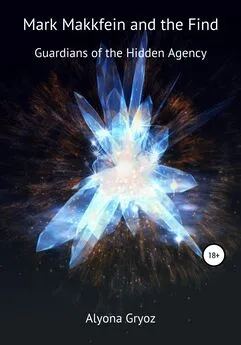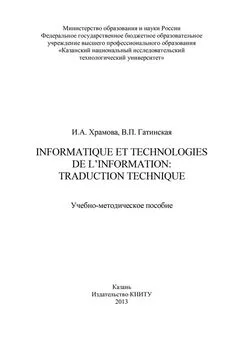Mark Mills - The Information Officer
- Название:The Information Officer
- Автор:
- Жанр:
- Издательство:неизвестно
- Год:неизвестен
- ISBN:нет данных
- Рейтинг:
- Избранное:Добавить в избранное
-
Отзывы:
-
Ваша оценка:
Mark Mills - The Information Officer краткое содержание
The Information Officer - читать онлайн бесплатно ознакомительный отрывок
Интервал:
Закладка:
“How’s Ugo’s wife?” Max inquired of the waiter.
“She dead.”
“Oh.”
In case there was any doubt, the waiter tilted his head to one side and let a fat tongue roll out of his mouth. The eyes remained open, staring.
“Two coffees, please.”
“Two coffee.”
“Yes. Thank you.”
Max’s eyes tracked the waiter as he waddled off, but his thoughts were elsewhere, with Ugo, and he wondered how long it would be before he smiled his crooked smile again.
He forced his attention back to the young man sitting across from him. Edward Pemberton was taking in his surroundings—the tall windows, the elaborately painted walls, and the high beamed ceiling—apparently immune to the mention of death.
“What a beautiful place.”
“It’s the old Auberge de Provence.”
Once home to the Knights of Saint John, the grand baroque edifice now housed the Union Club, a welcome haven from the hard realities of war for the officer classes. The building seemed to bear a charmed life, standing remarkably unscathed among the ruins and rubble of Kingsway, Valetta’s principal street. With its reassuring whiff of a Saint James’s gentleman’s club, there was no better place to break the news to young Pemberton. It might help soften the blow.
“Who’s Ugo?”
So he had been listening, after all.
“The head waiter.”
“How did his wife die?”
Max hesitated, then told him the story. No point in pretending that things hadn’t turned nasty of late. In fact, it might fire his sense of outrage, winning him over to the cause, although, when it came to it, Pemberton would have very little say in the matter. He wouldn’t be leaving Malta anytime soon; he just didn’t know that yet. Another bird of passage ensnared by the beleaguered garrison. Poor bastard.
Max spelled it out as gently as he could. The lieutenant governor’s office had already been in touch with the brass in Gibraltar, who appreciated that Malta’s back was up against the wall. If Pemberton’s services were required on the island, then so be it. Needs must, and all that. Force majeure. First dibs to the downtrodden. You get the picture.
“I understand,” said Pemberton.
“Really?”
“Absolutely, sir. No objections.”
Max wanted to ask him if he had any notion of what lay in store for him: the breathless heat and the choking dust; the mosquitoes, sand flies, and man-eating fleas; the sleepless nights and the starvation rations. Oh, and the Luftwaffe, who, together with the Regia Aeronautica, were intent on wiping the island off the map, on bombing it into oblivion.
“I never wanted to go to Gib,” Pemberton went on. “It never appealed … as a place, I mean.”
War as tourism , thought Max. Well, that’s one way of coming at it, and probably no better or worse than any other.
“Malta has a lot to offer,” said Max. “When the history of the war comes to be written, this little lump of rock in the middle of the Med will figure large.”
“If you’re appealing to my vanity, it might just work.”
Max gave a short loud laugh, which drew glances from a couple of artillery types at a nearby table. Pemberton was smiling coyly, faultless teeth flashing in his wide, strong mouth. Matinee idol looks and a sense of humor. Perfect fodder for Rosamund , Max mused. She’ll never forgive me if I don’t offer her the right of first refusal .
Pemberton explained (with a degree of candor he would soon learn to curb) that he was sick of being shunted from pillar to post under the protective tutelage of his uncle, a bigwig in the War Office.
“I should warn you, he won’t be best pleased.”
“Then you can tell him that Malta has already saved your life,” replied Max. “The seaplane you should have flown out on last night is missing.”
“Missing?”
“Brought down near Pantelleria, we think. They have the radio direction finding and a squadron of 109s stationed there. We won’t know for sure until we hear what Rome Radio has to say on the matter. They talk a lot of rubbish, of course, but we’ve grown pretty adept at panning for the small truths that matter to us.”
Pemberton stared forlornly at his cup of coffee before looking up. “I had lunch with the pilot yesterday. Douglas. I knew him from Alex. Douglas Pitt.”
Max had never heard of Pitt, but then the seaplane boys at Kalafrana Bay rarely mingled, not even with the other pilots. They were always on the go, running the two-thousand-mile gauntlet between Alexandria and Gibraltar at opposite ends of the Mediterranean, breaking the journey in Malta—the lone Allied outpost in a hostile Nazi-controlled sea.
“You’ll get used to it.”
Pemberton’s eyes locked on to Max, demanding an explanation.
“Look, I’d be lying if I said casualty rates weren’t running pretty high right now. People, they … well, they’re here one day, gone the next.”
When Pemberton spoke, there was a mild note of irritation in his tone. “That doesn’t mean you have to stop remembering them.”
Well, actually it does , thought Max. Because if you spent your time thinking about the ones who’d copped it, you wouldn’t be able to function. In his first year he had written four heartfelt letters to the families of the three men and one woman he had known well enough to care for. He hadn’t written any such letters in the past year.
“No, you’re right, of course,” he said.
Pemberton would find his own path through it, assuming he survived long enough to navigate one.
“So, tell me, what do you know about Malta?”
“I know about Faith, Hope , and Charity.”
Everyone knew about Faith, Hope , and Charity; the newspapers back home had made sure of that, enshrining the names of the three Gloster Gladiators in the popular imagination. The story had “courage in the face of adversity” written all over it, just what the home readership had required back in the summer of 1940. While Hitler had skipped across northern Europe as though it were his private playground, on a small island in the Mediterranean three obsolescent biplanes had been bravely pitting themselves against the full might of Italy’s Regia Aeronautica, wrenched around the heavens by pilots barely qualified to fly them.
And so the myth was born. With a little assistance.
“Actually, there were six of them.”
“Six?”
“Gloster Gladiators. And a bunch more held back for spares.”
Pemberton frowned. “I don’t understand.”
“Three makes for a better story, and there were never more than three in the air at any one time, the others being unserviceable.”
The names had been coined and then quietly disseminated by Max’s predecessor, their biblical source designed to chime with the fervent Catholicism of the Maltese.
“It’s part of what we do at the Information Office.”
“You mean propaganda?”
“That’s not a word we like to use.”
“I was told you were independent.”
“We are. Ostensibly.”
Max detected a worrying flicker of youthful righteousness in the other man’s gaze. Six months back, he might have retreated and allowed Pemberton to figure it out for himself, but with Malta’s fortunes now hanging by a thread, there was no place for such luxuries. He needed Pemberton firmly in the saddle from day one.
“Look, none of us is in the business of dragging people’s spirits down. The Huns and Eye-ties have cornered that market.”
He manufactured a smile, which Pemberton politely mirrored.
“You’re evidently a bright young man, so I’m going to save you some time and tell you the way it is.”
He opened with a history lesson, partly because Pemberton’s file made mention of a respectable second-class degree in that subject from Worcester College, Oxford.
It was best, Max explained, to take the stuff in the newspapers back home about “loyal little Malta” with a pinch of circumspection. At the outbreak of hostilities with Italy in June 1940, when that sawdust Caesar Mussolini threw his hand in with Hitler, Malta was a far more divided island than the British press had ever acknowledged. The Maltese might have offered themselves up to the British Empire back in 1800, but almost a century and a half on, there were many who wanted out of the relationship, their hearts set on independence from the mother country. Seated across the table from these nationalists in the Council of Government were the constitutionalists, defenders of the colonial cross. Not only were they superior in number, but they had the backing of the Strickland family, who effectively controlled the Maltese press, putting out two dailies: the Times of Malta and its vernacular sister paper, Il-Berqa .
The war had played into the hands of the Strickland loyalists. The first Italian bombs to rain down onto the island severely dented the affinity felt by many of the Maltese for their nearest neighbors, a short hop to the north across the blue waters of the Mediterranean. But neither were the Maltese fools—far from it. They could spot a lie at a hundred paces, and many were wary of the Strickland rags, which they knew to be slanted toward the British establishment.
Hence the Information Office, whose Daily Situation Report and Weekly Bulletin offered up for public consumption a cocktail of cold, factual, and apparently unbiased news. In essence, the Daily Situation Report was a scorecard. How many of their bombs had found their marks? And how many planes had both they and we lost in the course of that day’s raids? There were gray areas, of course, not least of all the often-conflicting claims made by the RAF and the artillery. In the wild confusion of a heavy raid on Grand Harbour, who could say with absolute certainty that a diving Stuka had been brought down by ack-ack fire and not the Hurricane on its tail?
Mediating such disputes had ruined many a pleasant evening for Max, all thanks to the late situation report—an update to the five o’clock report—which he was expected to put out at ten forty-five P.M. He’d lost count of the number of times he’d been summoned to the phone in the middle of an enjoyable dinner party to listen to the tedious bleatings of HQ Royal Artillery and RAF Intelligence, each so eager to stake their claim to another precious scalp.
Max thought it best to hold this information back from Pemberton. He certainly didn’t explain that the main reason he’d lobbied the lieutenant governor’s office for an assistant to take over the editorship of the Daily Situation Report was so that his own evenings might remain uncluttered by such irritations.
Instead, he played up his own onerous workload, spelling out in some detail the other activities of the Information Office: the monitoring of enemy radio stations in the Mediterranean; the translation of BBC broadcasts and speeches by the governor into Maltese; and the production of light entertainments, which, along with the relentless stream of news items, were put out over the island’s Rediffusion system.
“Gilding the pill,” said Pemberton distractedly, when Max was finished.
“Nicely put.”
“But not propaganda.”
“Perish the thought.”
“Well, not ostensibly.”
“Never ostensibly. Before the week’s out, I’ll be up in front of the finance committee fighting to justify the additional expense to the department of one Edward Pemberton.”
No lie there. Max would have to make his case, then the Maltese representatives would haul him over the coals, and then they would agree to his demands. In its own small way, this predictable little theater, played out with tedious regularity, laid bare one of the grander themes of colonial administration: allow them a voice, then tell them what to say.
Читать дальшеИнтервал:
Закладка:




![Джеймс Купер - Пионеры, или У истоков Саскуиханны [The Pioneers, or The sources of the Susquehannah]](/books/1066142/dzhejms-kuper-pionery-ili-u-istokov-saskuihanny-t.webp)




